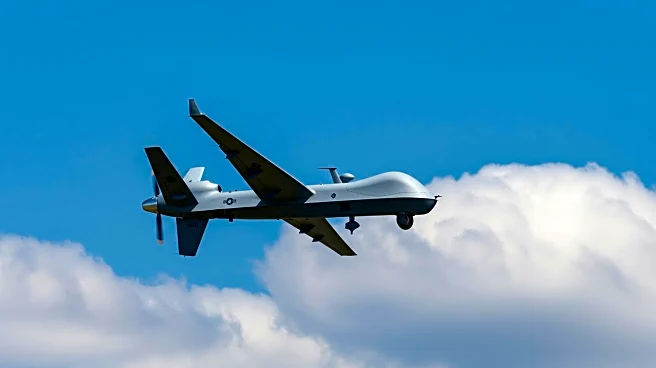What's Happening?
Defense Secretary Pete Hegseth has dismissed Lt. Gen. Jeffrey Kruse, the head of the Defense Intelligence Agency (DIA). This decision follows an initial assessment by the DIA in June, which indicated that strikes against Iran's nuclear facilities had a limited effect. This assessment appeared to contradict President Trump's earlier claims that the facilities had been 'obliterated.' The Pentagon and White House have not provided a specific reason for Kruse's dismissal, but congressional officials have cited a 'lack of confidence' as the rationale. Kruse, who assumed his role in February 2024, was expected to serve until 2027. His removal is part of a broader pattern under Hegseth's leadership, which has seen several senior military officials dismissed.
Why It's Important?
The firing of Lt. Gen. Kruse underscores potential tensions within the U.S. military and intelligence community regarding the handling and communication of sensitive information. The discrepancy between the DIA's assessment and President Trump's statements highlights challenges in aligning military intelligence with political narratives. This situation could impact the credibility of U.S. intelligence assessments and the decision-making processes within the Pentagon. The removal of high-ranking officials may also affect the stability and morale within the military, as it suggests a possible shift in leadership dynamics and priorities under Secretary Hegseth.
What's Next?
With Deputy Director Christine Bordine stepping in as Acting Director of the DIA, there may be changes in how intelligence assessments are conducted and communicated. The Pentagon might face increased scrutiny from Congress and the public regarding the transparency and accuracy of its reports. Additionally, the broader implications of these leadership changes could influence U.S. military strategy and operations, particularly in relation to Iran and other geopolitical hotspots. Stakeholders within the military and intelligence communities will likely monitor these developments closely to assess their impact on U.S. national security policies.









